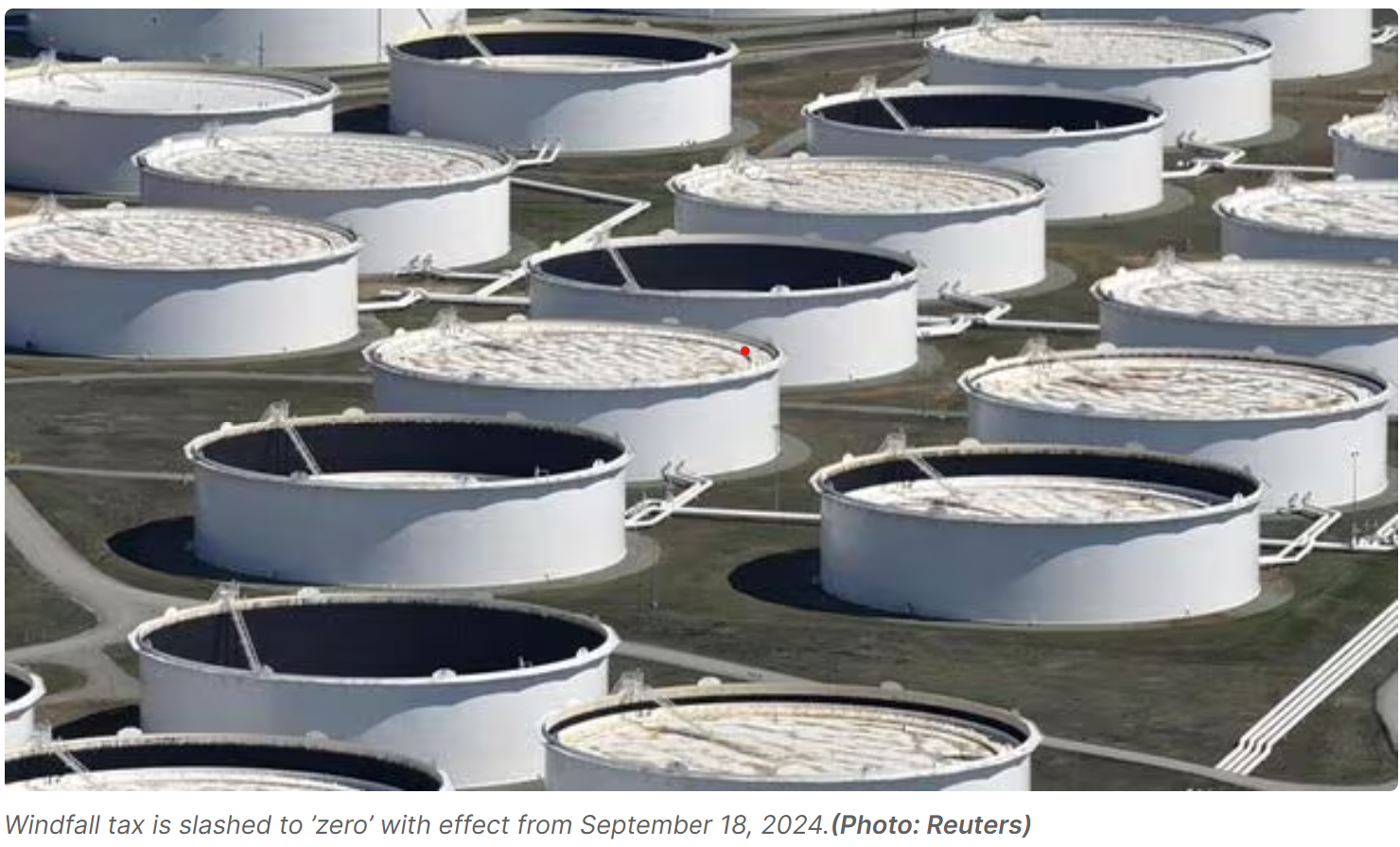Windfall tax on crude oil cut to zero

- 18 Sep 2024
In News:
The windfall tax on domestically produced crude oil will be slashed to ‘zero’ effective September 18. This marks its second reduction to nil since its introduction in July 2022.
Key Details:
- The windfall tax is revised every 15 days based on average oil prices over the previous two weeks, charged as Special Additional Excise Duty (SAED) on profits from domestically produced crude oil.
- The last revision, effective August 31, set the windfall tax at ?1,850 per tonne.
- The SAED on the export of diesel, petrol, and jet fuel (ATF) has been set to ‘nil’ following a major decline in crude oil prices.
- This is the second instance since the tax was imposed that it has been reduced to nil; the first reduction occurred on April 4, 2023.
Crude Oil Prices
- Crude oil prices increased by $1 per barrel due to supply chain issues; traders anticipate demand growth if the US Federal Reserve lowers borrowing costs.
- More than 12% of crude production from the US Gulf of Mexico was offline last week due to Hurricane Francine, contributing to price increases in three of the past four sessions. US crude futures rose by $1.31 (1.9%) to $71.40, while Brent crude futures increased by $1 (1.4%) to $73.75 per barrel.
- The windfall tax on crude oil companies was introduced in July 2022 to control extreme profits from gasoline, diesel, and aviation fuel exports.
What is a Windfall Tax?
- A windfall tax is a surtax imposed by governments on businesses or economic sectors that have benefited from economic expansion.
- The purpose is to redistribute excess profits in one area to raise funds for the greater social good; however, this can be a contentious ideal.
- Some individual taxes—such as inheritance tax or taxes on lottery or game-show winnings—can also be construed as a windfall tax.
